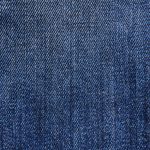Looking for the perfect bed sheets? In this ultimate guide, we’ll help you choose soft and breathable cotton sheets that will provide you with the ultimate comfort.
Discover the different types of cotton, understand thread counts, and learn about the best weave patterns for breathability.
We’ll also share tips on selecting the right size and maintaining the softness and breathability of your sheets.
Plus, we’ll help you find budget-friendly options that won’t break the bank.
Get ready to sleep in pure comfort!
Table of Contents
Types of Cotton for Soft and Breathable Bed Sheets
When choosing soft and breathable bed sheets, it’s important to consider the different types of cotton available to find the perfect option for you. Two popular types of cotton known for their luxurious feel and excellent breathability are Egyptian cotton and Pima cotton.
Egyptian cotton is considered the gold standard when it comes to cotton bed sheets. It’s known for its long fibers, which result in a strong and durable fabric that feels incredibly soft against your skin. Egyptian cotton sheets are also highly breathable, allowing air to circulate and keep you cool throughout the night. Additionally, these sheets have a luxurious sheen and are often praised for their ability to become even softer with each wash.
Pima cotton, also known as Supima cotton, is another excellent choice for soft and breathable bed sheets. It’s grown primarily in the United States and is known for its long fibers, similar to Egyptian cotton. Pima cotton sheets offer exceptional comfort and breathability, making them ideal for hot sleepers or those who live in warmer climates. They’re also highly durable and resistant to pilling, ensuring that your sheets will retain their softness and quality over time.
Understanding Thread Counts for Comfortable Bed Sheets
To understand the comfort of your bed sheets, you need to know about thread counts. Thread count refers to the number of threads woven into one square inch of fabric. A higher thread count generally indicates a softer and more luxurious sheet. However, it’s important to note that thread count isn’t the only factor to consider when choosing comfortable bed sheets.
Here are some key points to understand about thread counts:
-
Choosing the right bed sheet size: When selecting bed sheets, it’s essential to choose the right size for your mattress. Ill-fitting sheets can be uncomfortable and may affect the overall comfort of your bed.
-
Maintaining softness and breathability: While a higher thread count can provide a softer feel, it’s also important to consider the breathability of the fabric. Look for sheets made from natural fibers like cotton, as they tend to be more breathable and comfortable.
-
The sweet spot for thread count: While a higher thread count can offer a softer feel, it doesn’t always equate to better quality. A thread count between 200 and 400 is generally considered to be the sweet spot for soft and breathable sheets.
-
Consider the weave: The weave of the fabric also plays a role in the comfort of your bed sheets. Sateen weaves, for example, have a smoother and silkier feel, while percale weaves offer a crisp and cool sensation.
Weave Patterns: Which Ones Are Best for Breathability
Now let’s delve into the best weave patterns for breathability, building upon our understanding of thread counts and fabric comfort.
When it comes to choosing soft and breathable cotton bed sheets, the weave pattern plays a crucial role. Two popular options are satin and sateen. Satin sheets have a smooth and luxurious feel, but they may not be the best choice for breathability. On the other hand, sateen sheets are made with a weave pattern that gives them a lustrous appearance and a silky touch. While sateen sheets are soft and comfortable, they may not be the most breathable option either.
If you prioritize breathability, you might want to consider percale or twill weave patterns. Percale sheets have a crisp and cool feel, making them ideal for hot sleepers or warm climates. This weave pattern creates a breathable and lightweight fabric that allows for better airflow, keeping you cool throughout the night. Twill sheets, on the other hand, have a diagonal weave pattern that adds texture and durability. While they may not be as breathable as percale, twill sheets still offer good airflow and can be a great option if you prefer a slightly heavier feel.
When choosing the best weave pattern for breathability, consider your personal preferences and the climate where you live. Whether you opt for satin, sateen, percale, or twill, remember that the quality of the cotton and the thread count will also impact the overall breathability and comfort of your bed sheets.
Factors to Consider: Weight and Thickness of Cotton
When choosing cotton bed sheets, it’s important to consider the weight and thickness of the fabric.
The thread count is an important factor to consider as it determines the softness and durability of the sheets.
Additionally, the weave pattern affects the breathability of the fabric, allowing for better airflow and a cooler sleep experience.
Thread Count Importance
Consider the weight and thickness of the cotton when determining the importance of thread count in choosing soft and breathable bed sheets. The thread count of a sheet refers to the number of threads per square inch. While many believe that a higher thread count automatically means better quality, there are actually myths surrounding this notion. It’s important to understand that thread count is just one factor to consider.
Here are some alternatives to high thread count sheets that can still provide softness and breathability:
- Choose a lower thread count with long-staple cotton for durability and comfort.
- Look for sheets made from organic or Egyptian cotton, which are known for their superior quality.
- Consider percale sheets with a lower thread count, as they’re tightly woven and have a crisp feel.
- Opt for sateen sheets, which have a satin-like finish and a luxurious softness despite a lower thread count.
Weave and Breathability
To ensure optimal breathability, you should take into account the weight and thickness of the cotton when selecting your bed sheets. The weave of the cotton fabric plays a crucial role in determining its breathability. A looser weave allows for better air circulation, keeping you cool and comfortable throughout the night.
Additionally, the weight and thickness of the cotton affect its moisture-wicking properties. Lighter and thinner cotton sheets tend to absorb and release moisture more efficiently, helping to keep you dry and sweat-free. On the other hand, heavier and thicker cotton sheets may trap heat and moisture, causing discomfort and potential night sweats.
Therefore, it’s important to consider the weave, weight, and thickness of the cotton fabric when choosing bed sheets to ensure maximum breathability and comfort.
Durability and Long-Lasting
To ensure durability and long-lasting bed sheets, it’s important to take into account the weight and thickness of the cotton fabric. The weight and thickness of the cotton fabric directly affect the durability and comfort of the bed sheets. Here are some factors to consider:
-
Weight: Heavier cotton sheets tend to be more durable and long-lasting compared to lighter ones. They can withstand frequent washing and everyday use without losing their quality.
-
Thread count: A higher thread count typically indicates a denser and stronger fabric. Look for bed sheets with a thread count of at least 200 to ensure durability and comfort.
-
Weave: Choose bed sheets with a tight weave, such as percale or sateen, as they’re less prone to pilling and tearing. These weaves also provide a smooth and soft feel.
-
Natural fibers: Opt for bed sheets made from 100% natural cotton fibers. Natural fibers are known for their durability and breathability, ensuring a comfortable and long-lasting sleep experience.
Choosing the Right Bed Sheet Size for a Perfect Fit
Finding the perfect fit for your bed sheets starts with selecting the right size. When it comes to bed sheet sizes, it’s important to remember that not all mattresses are created equal. Bed sheet sizes can vary depending on the type of bed you have, whether it’s a twin, full, queen, king, or California king. Before purchasing bed sheets, make sure to measure the dimensions of your mattress to ensure a proper fit.
Bed sheet materials can also play a role in determining the right size. Different materials may have different shrinkage rates, so it’s important to check the product description or label for any specific care instructions. Some materials, like cotton, may shrink slightly after washing, while others, like microfiber, may not shrink at all.
To ensure a perfect fit, look for bed sheets with deep pockets or elasticized corners. Deep pockets are designed to accommodate thicker mattresses, while elasticized corners provide a snug fit and prevent the sheets from slipping off during the night. Additionally, consider the thickness of your mattress to determine the appropriate pocket depth.
Care Tips: Maintaining the Softness and Breathability
To maintain the softness and breathability of your cotton bed sheets, follow these care tips:
-
Wash with care: Opt for a gentle cycle and use mild detergent to prevent any damage to the fabric. Harsh detergents can strip away the natural softness of the cotton and reduce its breathability.
-
Avoid high heat: When drying your sheets, set the dryer to a low heat or air-dry them to prevent shrinkage. High heat can cause the fibers to contract and lose their softness, resulting in less breathable sheets.
-
Separate colors: Sort your bed sheets by color to avoid any color bleeding. Washing lighter and darker shades separately will prevent the colors from transferring and help maintain the freshness of your sheets.
-
Store properly: Fold your cotton bed sheets neatly and store them in a cool, dry place. Avoid exposing them to direct sunlight or damp areas, as this can lead to mildew and affect their softness and breathability.
Maintaining the softness and breathability of your cotton bed sheets is essential for a comfortable and restful sleep. By following these care tips, you can ensure that your sheets stay fresh, prevent shrinkage, and provide the ultimate level of comfort for years to come.
Budget-Friendly Options: Finding Affordable Cotton Bed Sheets
Looking for cotton bed sheets that won’t break the bank?
When it comes to finding affordable options, it’s important to consider the balance between quality and affordability.
The best value for your money lies in finding bed sheets that are both budget-friendly and still offer good quality.
Best Value for Money
When shopping for affordable cotton bed sheets, consider the best value for your money. You don’t have to spend a fortune to find quality sheets that are both budget-friendly and comfortable. Here are some affordable choices to consider:
-
Egyptian Cotton: Look for sheets made from Egyptian cotton, known for its softness and durability. Despite being a high-quality material, it can still be found at affordable prices.
-
Thread Count: Don’t be fooled by the myth that higher thread count always means better quality. Opt for sheets with a thread count between 200 and 400, which offer a good balance of softness and affordability.
-
Sateen Weave: Sateen weave cotton sheets have a silky smooth feel and a subtle sheen. They’re often more affordable compared to other types of weaves.
-
Outlet Stores and Online Sales: Check out outlet stores or browse online for discounted prices on cotton bed sheets. You may be able to find great deals on high-quality sheets that fit your budget.
With these budget-friendly options, you can find affordable cotton bed sheets without compromising on quality or comfort.
Quality Vs Affordability
Finding affordable cotton bed sheets that balance quality and affordability is essential for budget-conscious shoppers. When it comes to bedding, you want to find the perfect balance between price and comfort. While it’s tempting to go for the cheapest option available, compromising on quality can lead to disappointment in the long run.
However, that doesn’t mean you have to break the bank to get decent cotton bed sheets. There are affordable options out there that offer a good combination of quality and affordability. Look for brands that prioritize using high-quality cotton and have positive customer reviews.
Additionally, keep an eye out for sales, discounts, and promotions that can help you snag a great deal on cotton bed sheets without sacrificing comfort.
Frequently Asked Questions
What Are the Benefits of Using Soft and Breathable Cotton Bed Sheets?
Soft and breathable cotton bed sheets offer numerous benefits. With a high thread count, they provide a luxurious feel and promote better airflow, ensuring a comfortable and restful night’s sleep. Choose wisely for ultimate comfort.
Are There Any Alternative Materials to Cotton That Offer Similar Softness and Breathability?
Looking for alternatives to cotton for soft and breathable bed sheets? Silk is a great option. It offers similar softness and breathability, providing a luxurious and comfortable sleep experience. Consider silk as an alternative material.
Can I Use Fabric Softener on Cotton Bed Sheets to Maintain Their Softness?
Yes, you can use fabric softener on cotton bed sheets to maintain their softness. However, keep in mind that using too much can leave a residue and reduce absorbency.
How Often Should I Wash My Cotton Bed Sheets to Ensure They Remain Soft and Breathable?
To keep your cotton bed sheets soft and breathable, wash them regularly. Follow best laundry practices by using a gentle cycle with a mild detergent. Avoid overloading the machine to ensure proper cleaning and maintain their quality.
Are There Any Specific Washing Instructions or Techniques for Maintaining the Breathability of Cotton Bed Sheets?
To maintain breathability, wash cotton bed sheets in cold water and use a gentle cycle. Avoid using fabric softeners as they can reduce softness. Hang dry or use a low heat setting in the dryer.
- How Does Ring Spun Cotton Affect Garment Fit and Shape Retention? - August 13, 2024
- What Are the Challenges in Producing Ring Spun Cotton? - August 13, 2024
- Is Ring Spun Cotton Suitable for Plus-Size Clothing? - August 13, 2024





